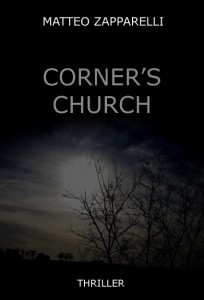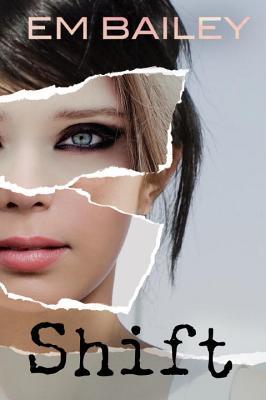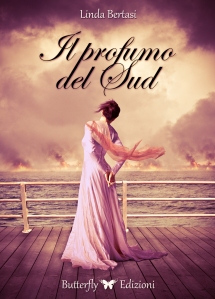Ciao a tutti, ragazze e ragazzi! Ho avuto la possibilità di porre qualche domanda all'autore de "Il segreto della libreria sempre aperta", ossia Robin Sloan, che ha gentilmente accettato di rispondere. Innanzitutto vediamo più da vicino il suo romanzo di esordio.
 |
| Schiacciate QUI se volete leggere la trama del libro o acquistarlo Schiacciate QUI per leggere la mia recensione |
INTERVISTA IN INGLESE
First of all welcome to my blog, Robin. Would you like to tell us a little about yourself?
It's good to be here! I'm a writer in San Francisco, California; Il Segreto della Libreria Sempre Aperta is my first novel.
Would you like to introduce briefly your book to blog readers?
It's a mystery and an adventure that begins when a young man finds a job working the night shift at a 24-hour bookstore. Of course, the bookstore turns out to be much more than it appears… in fact, it holds a secret nearly 500 years old—almost as old as books themselves.
I've read your book and I've really liked it (HERE my review), in particular the mixture you've created of hi-tech elements and books, two completely different worlds. So, how was this idea born?
The truth is, that's simply my world: I love technology, but I also love books—the real, printed kind. I'm not particularly convinced they're even "different worlds," though. The more I've studied the early history of publishing, the more familiar it seems; in fact, I think Italy circa 1500 was a lot like Silicon Valley today. Almost eerily so. And if you study that place and that time, you realize that books themselves are a form of technology. They always have been. So it's all one world, one story: one that's been unfolding for (at least) 500 years.
The main character is Clay, a determined guy who always tries to achieve his goals. So, how much of yourself did you put into him?
Clay and I aren't totally the same person, but his voice is definitely mine. I think if you go back and read old blog posts I wrote on the internet around 2007 or so, you'll find a way of saying things that's very similar to Clay's in this book.
There are a lot of characters in the book, all of whom are well-characterized. Which one do you prefer and why?
Oh, no question: I like Kat the best. Here in San Francisco, I have worked with so many super-impressive female designers and engineers, and yet somehow that archetype is almost entirely absent in fiction. I couldn't understand why… and eventually it started to make me pretty angry… so I decided to set things straight with Kat.
Since in the book there are plenty of technological references, I would like to know what you think about e-books. Are they better than paper? And, one day, will they be able to replace it?
I don't think e-books are better than paper; but I don't think paper books are better than e-books, either. They're both good for different things. For instance, I like the fact that the paper books on my shelf take up space; that they can "remind me" that they exist, and entice me to pick them up—even from across the room. E-books can't really do that; they disappear too easily. But on the other hand, when I travel, I never ever carry heavy books anymore. Instead, I take a tablet loaded with e-books. For me—and I suspect for many others as well—these two formats don't actually compete much. Instead, they're very complementary.
Oh definitely—and I know this book isn't for everyone. But I was writing the kind of book I wanted to read myself. I'm a huge fan of books that try to capture this moment right now, and I don't think you can do that without writing about technology. (For more examples of that kind of right-now book—the kind I love most—I recommend William Gibson's latest three novels.)
Yes, I'm working on a new book! I can't say too much about it yet, but here's one thing that might be interesting: it prominently features food and wine. I guess you could put it this way: what books are to Il Segreto della Libreria Sempre Aperta, food is to this new story.
Can you show us where we can follow you? For example Facebook, Twitter and so on.
I use Twitter most often, and there I'm @robinsloan. I look forwarding to meeting Italian readers there—I don't know much Italian, but I do know how to say "grazie per la lettura"!
INTERVISTA IN ITALIANO
Innanzitutto benvenuto sul mio blog, Robin. Vorresti raccontarci qualcosa di te?
È bello essere qui! Sono uno scrittore di San Francisco, California; Il segreto della libreria sempre aperta è il mio primo romanzo.
Vorresti introdurre brevemente il tuo libro ai lettori del blog?
Si tratta di un mistero e di un'avventura che inizia quando un giovane ragazzo trova un impiego facendo il turno di notte in una libreria aperta 24 ore. Naturalmente, la libreria si rivela molto di più di quello che sembra... infatti, detiene un segreto di circa 500 anni - pressoché vecchio quanto i libri stessi.
Ho letto il tuo libro e mi è piaciuto molto (QUI la mia recensione), in particolare il miscuglio che hai creato tra elementi tecnologici e libri, due mondi completamente diversi. Quindi, come è nata questa idea?
La verità è che è semplicemente il mio mondo: mi piace la tecnologia, ma mi piacciono anche i libri - quelli reali, quelli stampati. Non sono particolarmente convinto, tuttavia, che siano addirittura "mondi differenti". Tanto più studio l'antica storia dell'editoria, tanto più familiare mi sembra; difatti, penso che l'Italia del 1500 sia un po' come la Silicon Valley di oggi. Quasi inquietante quindi. E se studiate quel luogo e quel momento, capite che i libri stessi sono una forma di tecnologia. Lo sono sempre stato. Dunque, è tutto un unico mondo, un'unica storia che è stata dispiegata per (almeno) 500 anni.
Il protagonista è Clay, un ragazzo determinato che cerca sempre di raggiungere i suoi obiettivi. Quindi, quanto di te hai inserito in lui?
Io e Clay non siamo affatto la stessa persona, ma la sua voce è sicuramente la mia. Penso che se voi tornaste indietro a leggere vecchi post che ho scritto sul blog nel 2007 circa, troverete un modo di dire le cose molto simile a quello di Clay nel libro.
Ci sono molti personaggi nei libro, i quali sono tutti ben caratterizzati. Quale preferisci e perchè?
Oh, non ho alcun dubbio: Kat è quella che mi piace di più. Qui a San Francisco, ho lavorato con così tante donne designer e ingegnere molto impressionanti, e ancora adesso, in qualche modo, questo archetipo è pressoché inesistente nella narrativa. Non riuscivo a capire il perché... e alla fine ha iniziato a farmi diventare piuttosto arrabbiato... così ho deciso di mettere le cose a posto con Kat.
Dato che nel libro ci sono molti riferimenti tecnologici, mi piacerebbe sapere cose pensi degli ebook. Sono meglio della carta? E, un giorno, potranno sostituirla?
Non penso che gli ebook siano migliori della carta; però, non penso neanche che i libri di carta siano migliori degli ebook. Sono entrambi buoni, ma per scopi differenti. Per esempio, mi piace il fatto che i libri di carta occupino spazio nella mia libreria; che possano "ricordarmi" quasi della loro esistenza, e mi invoglino a prenderli - anche se sono dall'altra parte della stanza. D'altra parte però, quando viaggio, non mi porto mai e poi mai libri pesanti. Invece, mi porto il tablet nel quale ho caricato gli ebook. Per me - e sospetto che anche per altri sia così - questi due modi di leggere non competono tra loro. Ma sono complementari.
Hai mai pensato che inserendo elementi tecnologici nel libro, alcuni lettori avrebbero potuto non apprezzarlo?
Oh, decisamente - e so che questo libro non è per tutti. Ma scrivevo il tipo di libro che io stesso volevo leggere. Sono un grandissimo fan dei libri che provano a catturare il momento istantaneamente, e non penso che si possa fare senza scrivere di tecnologia. ( Per ulteriori esempi di questo tipo di libri - che io adoro in assoluto - raccomando gli ultimi tre romanzi di William Gibson.)
Quali sono i tuoi piani futuri? Stai già scrivendo un nuovo libro?
Sì, sto lavorando a un nuovo libro. Non posso dire ancora molto, ma è una cosa che potrebbe essere interessante: sono messe in risalto le caratteristiche del cibo e del vino. Potreste metterla così: quello che i libri sono per Il segreto della libreria sempre aperta, il cibo lo è per questa nuova storia.
Puoi mostrarci dove possiamo seguirti? Ad esempio Facebook, Twitter e così via.
Uso molto spesso Twitter, nel quale potete trovarmi con il nome @robinsloan. Non vedo l'ora di incontrare lì dei lettori italiani - non conosco molto l'italiano, però so come dire "grazie per la lettura"!
Ed eccoci arrivati alla fine di questa intervista! Voi lo avete letto il suo libro? Cosa ne pensate?












